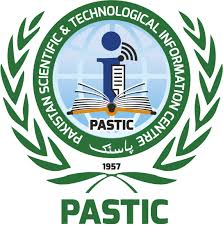Publication Ethics and Malpractice Statement (PEMS)
The Journal of Pak International Medical College (JPIMC) is committed to maintaining the highest standards of ethics, integrity, and accountability in scholarly publishing. Our policies follow the recommendations of the Committee on Publication Ethics (COPE), the International Committee of Medical Journal Editors (ICMJE), and the World Association of Medical Editors (WAME).
1. Responsibilities of Authors
-
Originality: Authors must submit original work that has not been published elsewhere and is not under consideration by another journal.
-
Plagiarism: All submissions are screened for plagiarism. Textual overlap beyond the journal’s acceptable similarity threshold (≤19% overall, ≤5% from a single source) will lead to rejection.
-
Data Integrity: Authors must ensure data accuracy and retain raw data for verification upon request. Fabrication, falsification, or manipulation of data is considered misconduct.
-
Authorship Criteria: Only those who made substantial contributions to the conception, design, data collection, analysis, or manuscript drafting/revision should be listed as authors, in line with ICMJE authorship guidelines.
-
Acknowledgment of Sources: Proper citation of all references, materials, and methods is mandatory.
-
Ethical Approval: Human studies require approval from an Institutional Review Board (IRB) and adherence to the Declaration of Helsinki. Animal studies must comply with the ARRIVE guidelines.
-
Informed Consent: Authors must confirm that informed consent was obtained for studies involving human participants or identifiable patient data.
-
Conflict of Interest: All financial or non-financial conflicts must be disclosed.
2. Responsibilities of Reviewers
-
Confidentiality: Reviewers must treat manuscripts as confidential documents and not use information for personal advantage.
-
Objectivity: Reviews must be impartial, constructive, and free from personal or professional bias.
-
Conflict of Interest: Reviewers must decline assignments if conflicts exist (financial, institutional, or personal).
-
Timeliness: Reviewers should provide feedback within the agreed timeline to maintain efficiency in the publication process.
3. Responsibilities of Editors
-
Editorial Independence: Decisions are made solely on the basis of scientific merit, originality, and relevance, without influence from sponsors, institutions, or personal relationships.
-
Fair Play: Manuscripts are evaluated without discrimination based on gender, ethnicity, nationality, or institutional affiliation.
-
Confidentiality: Editors must maintain strict confidentiality during the review process.
-
Conflict of Interest: Editors must recuse themselves from handling manuscripts in which they have conflicts.
-
Corrections & Retractions: Editors must issue corrections, retractions, or expressions of concern when errors or misconduct are identified.
4. Responsibilities of the Publisher (JPIMC)
-
Integrity of the Record: JPIMC ensures permanent availability of published content via archiving and DOI assignment.
-
Ethical Oversight: JPIMC takes responsibility for investigating ethical concerns (e.g., plagiarism, misconduct, undisclosed conflicts).
-
Access Policy: JPIMC operates under an open-access model (CC BY-NC 4.0 license), ensuring free availability of content.
-
No APC Charges: JPIMC does not impose submission or publication fees at any stage.
5. Misconduct and Malpractice
JPIMC defines misconduct as including, but not limited to:
-
Plagiarism, duplication, or redundant publication.
-
Fabrication or falsification of data.
-
Undisclosed conflicts of interest.
-
Misrepresentation of authorship.
-
Violation of ethical standards for human or animal research.
Consequences:
-
Rejection of the manuscript.
-
Retraction of the published article.
-
Blacklisting of authors for future submissions.
-
Notification of the authors’ institution and funding bodies.





